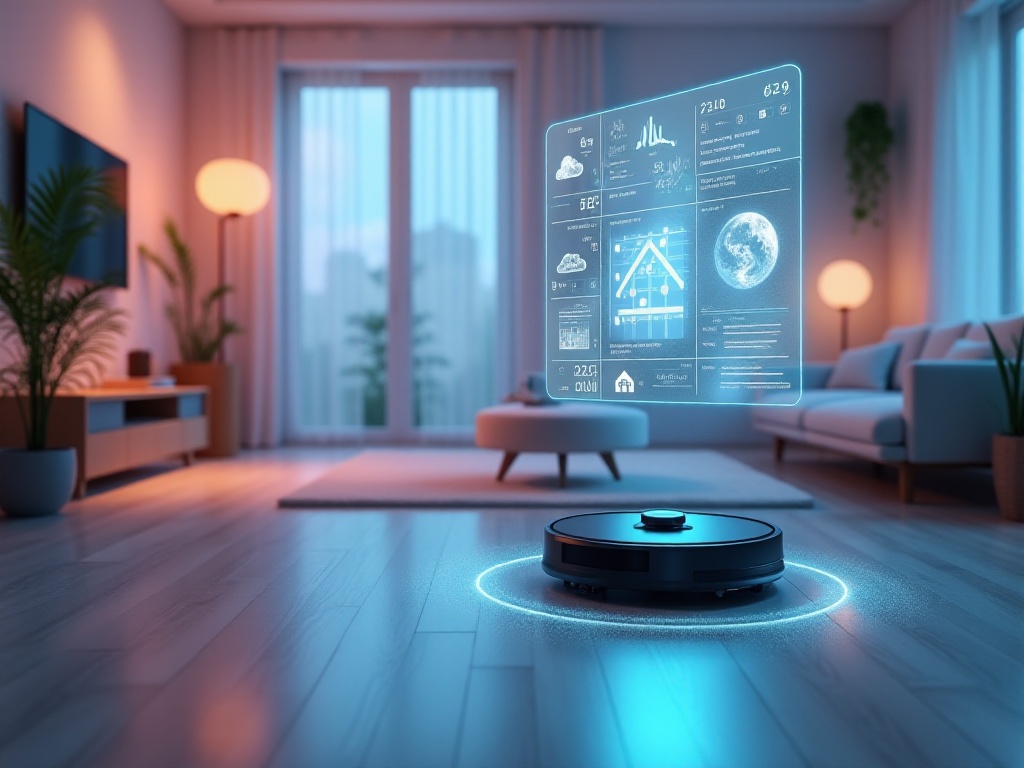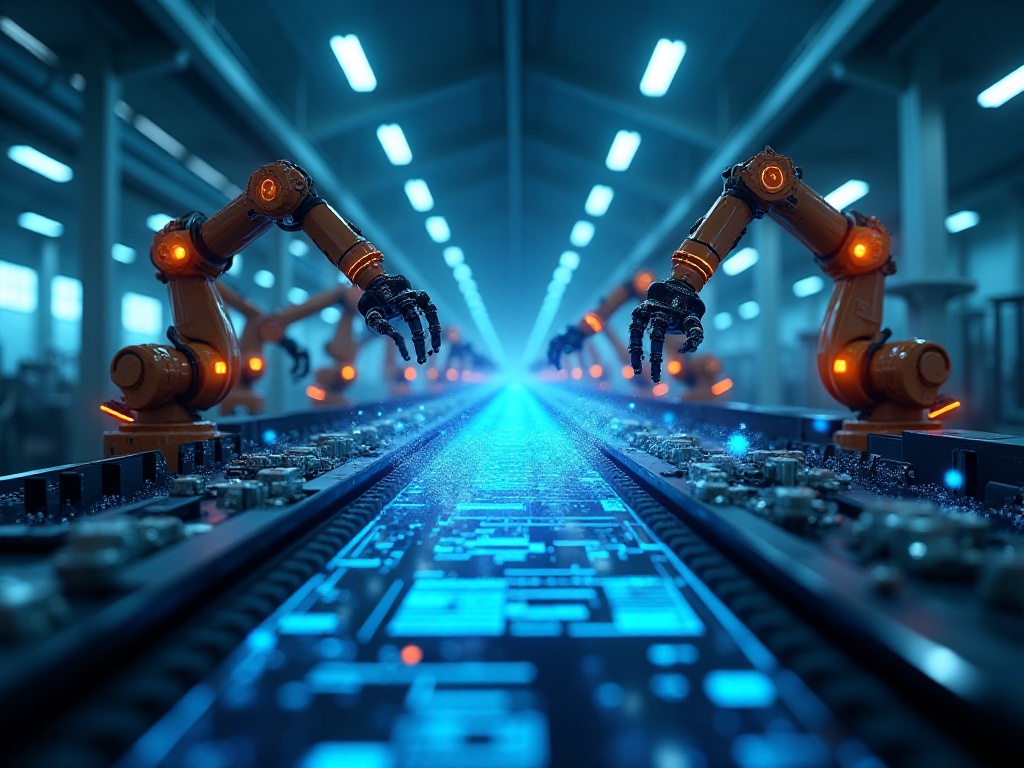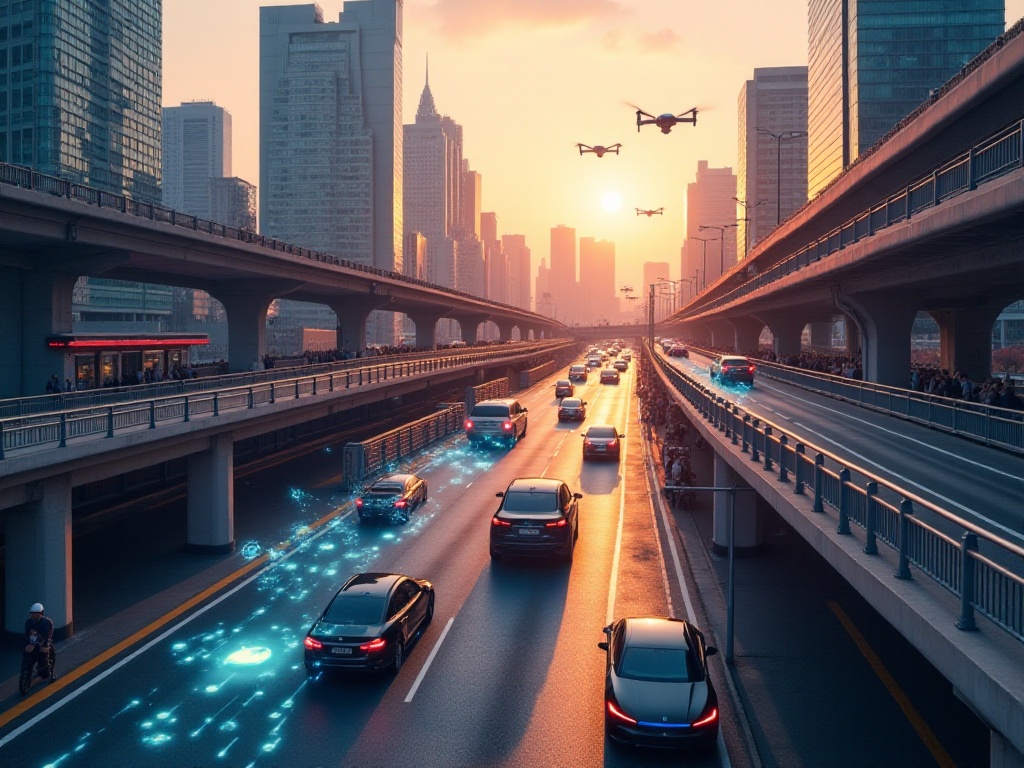Opening Thoughts
The other day I went to the hospital for a CT scan, and honestly, I was worried about waiting a long time for the results. However, the doctor told me that they now have an AI-assisted diagnostic system that can quickly complete preliminary analysis, which really surprised me. As a young person who frequently follows technology trends, I became deeply interested in this topic and took the time while waiting for my examination report to thoroughly research the field of medical AI.
The development speed of medical AI is truly beyond imagination, especially in medical imaging. Many hospitals now use AI for assisted diagnosis, which not only improves efficiency but also helps doctors identify problems more accurately. Just think, only a few years ago, this technology was still in the laboratory stage, but now it has entered our daily lives - this transformation is really stunning.
Technical Analysis
The working principle of medical imaging AI is particularly interesting. Just like how AI algorithms can accurately recommend content we like on TikTok, medical imaging AI uses similar deep learning technology to learn disease characteristics from vast amounts of medical images.
For example, when AI analyzes a chest X-ray, it observes every detail like an experienced doctor. It can identify abnormal shadows in the lungs, measure nodule sizes, analyze their shapes and density, and even determine what these features might represent in terms of possible lesions. While this process sounds simple, it involves complex algorithms and massive data training.
I recently saw an interesting study published in The Lancet. The research showed that AI's performance in lung cancer screening has become quite remarkable. It achieved an accuracy rate of 94.3%, even surpassing some expert physicians. This data reminds me of the facial recognition features we use daily - remember how it often made mistakes when first introduced, but now it's quite accurate. Medical AI is developing similarly, steadily improving accuracy through continuous learning and optimization.
Current medical imaging AI systems can now identify multiple diseases. Besides lung diseases, it can help diagnose fractures, cerebrovascular diseases, fundus diseases, and more. Each system is like a specialized "medical expert," continuously accumulating experience and improving diagnostic accuracy in its field.
I think what's most impressive is that these AI systems can complete analysis in seconds. Keep in mind that for an experienced doctor, carefully analyzing a complex medical image might take ten or more minutes. AI's efficiency not only helps doctors save time but also allows patients to receive preliminary diagnostic results faster.
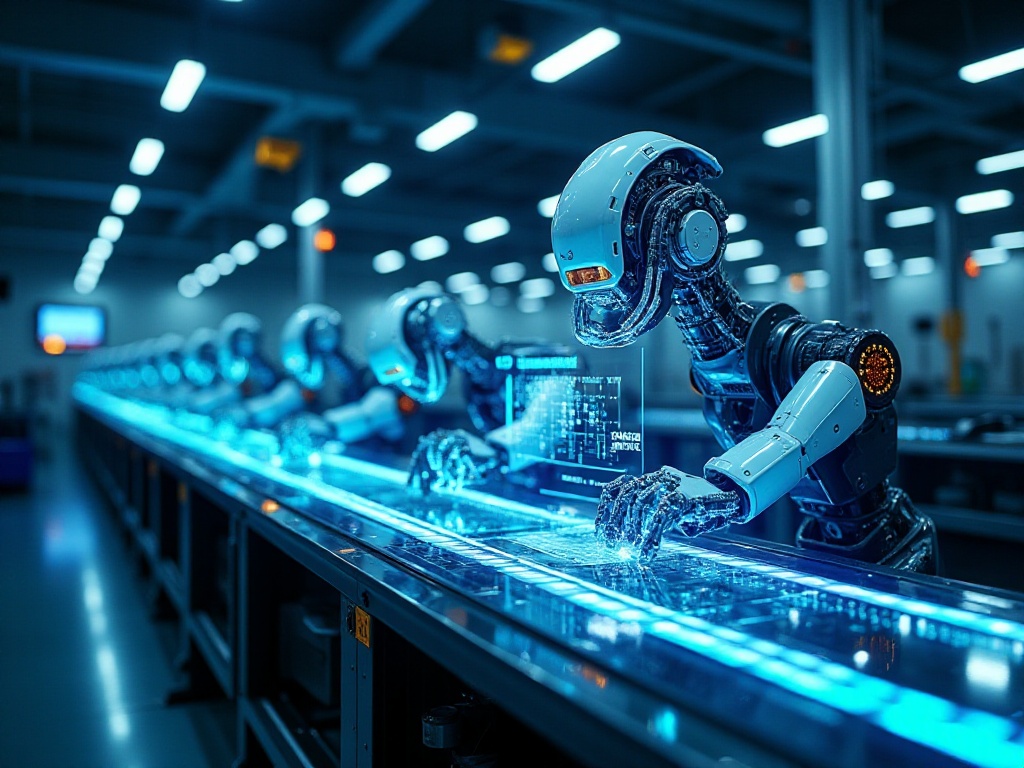
Practical Applications
Regarding practical applications, I've found that medical AI has already been implemented in many hospitals. Take Peking Union Medical College Hospital for example - their AI system analyzes over 3,000 chest X-rays daily, a workload that would be a huge burden for humans but is easily handled by AI. Most excitingly, diagnoses that used to take 15 minutes now take less than one minute.
What's even more heartwarming is AI's application in grassroots medical institutions. My cousin who works in a county hospital told me they're now using AI remote diagnostic systems. The system is particularly intelligent - after a patient gets a CT or MRI scan, AI immediately analyzes it. If abnormalities are detected, the system automatically notifies specialists at higher-level hospitals for remote consultation.
This model is truly innovative as it solves a long-standing problem in grassroots healthcare: insufficient quality medical resources. Previously, when dealing with complex cases in county hospitals, patients either had to travel back and forth to big cities or risk misdiagnosis. But now with AI assistance, the diagnostic capabilities of grassroots hospitals have significantly improved.
I've also learned that many hospitals have established imaging cloud platforms. Doctors can check AI analysis results anytime through their phones or tablets, allowing them to handle urgent cases even when they're not at the hospital. This mobile work approach makes medical services more flexible and efficient.
In some large hospitals, AI systems can automatically triage patients. For instance, when test results show serious abnormalities, the system automatically elevates the priority of that case, ensuring critical patients receive timely treatment. It's like having a tireless "triage nurse" guarding patients' health 24 hours a day.
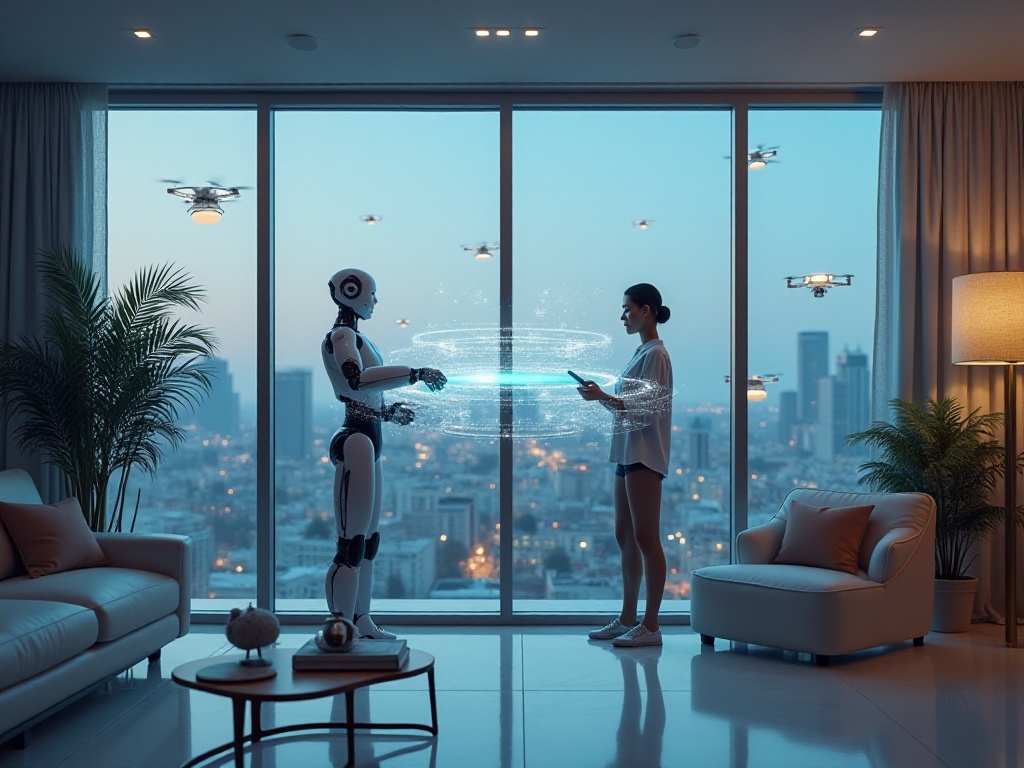
Industry Trends
Medical AI is now arguably one of the hottest fields in the technology industry. The global medical AI market size reached $45 billion in 2023 and is expected to exceed $100 billion by 2025. As a young person interested in investment, I find this growth rate truly remarkable.
Domestic tech giants are also actively positioning themselves in this field. Companies like Tencent Miying and Yitu Medical have invested heavily in medical AI development. Not just large companies, but many innovative startups are also making their mark in this field. This reminds me of the mobile payment sector a few years ago, where diverse competition ultimately promoted rapid development of the entire industry.
Many people ask if AI will replace doctors, which I find particularly interesting. As a young person who frequently uses various AI tools, my view is that AI is more like a super assistant for doctors. It's similar to using navigation software while driving - navigation can help plan routes and alert us to traffic conditions, but ultimately the driver decides how to drive. Medical AI is the same - it can provide professional analysis and suggestions, but final diagnostic decisions still require a doctor's professional judgment.
I think the biggest change AI brings is improving the efficiency and accessibility of medical services. In large hospitals, AI can help doctors quickly screen numerous cases, allowing them to focus more energy on cases requiring special attention. In grassroots hospitals, AI can compensate for the shortage of professional talent by providing preliminary diagnostic support.
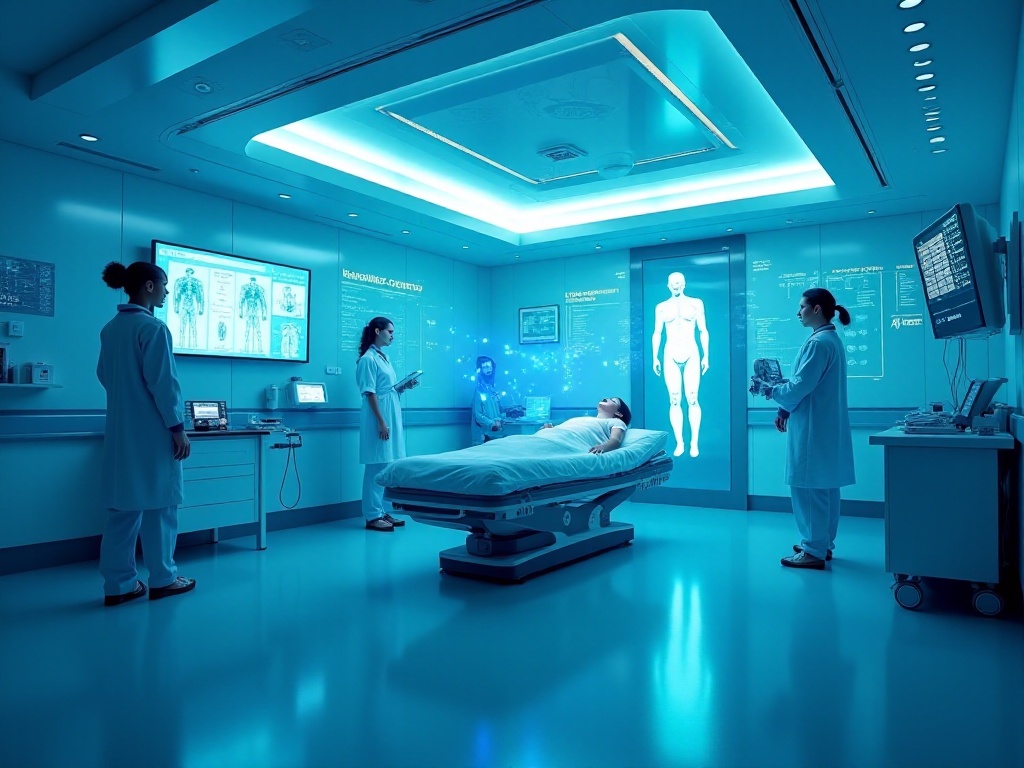
Future Outlook
Regarding the future of medical AI, I believe there's still huge room for development. Currently, AI mainly performs image recognition, like a specialist focused on reading scans. But future AI might be more versatile, potentially combining patient history, genetic information, lifestyle habits, and other multi-dimensional data to provide more comprehensive health analysis.
With the popularization of 5G technology, telemedicine will also see greater development. I envision a future scenario where we can conduct health checks at home through smart devices, with AI systems analyzing data in real-time and only recommending hospital visits when abnormalities are detected. This would not only save medical resources but also make preventive medicine truly practical.
Additionally, AI technology might change medical education methods. Many medical schools have already started using AI-assisted teaching systems to help medical students accumulate diagnostic experience more quickly. This reminds me of using language learning apps to study foreign languages, improving through extensive practice and immediate feedback. Medical imaging learning can also become more interactive and efficient.
I find it particularly interesting that future AI might develop "explanatory capabilities." Current AI systems can only say "abnormality found" or "no abnormality found" when giving diagnostic suggestions, but future AI might be able to explain in detail why it reached certain diagnostic conclusions, like an experienced doctor. This increased transparency will give doctors and patients more confidence in AI's judgments.

Concluding Remarks
Looking back at the development of medical AI, it's truly remarkable. From initial auxiliary tools to now being able to complete preliminary diagnoses independently, medical AI's progress has far exceeded many people's expectations. This progress isn't about replacing doctors but about making quality medical resources available to more people.
As the new generation, we're experiencing firsthand the changes brought by technology. The development of medical AI shows how technology can truly benefit humanity. It not only improves medical efficiency but more importantly makes quality medical resources more accessible.
Whenever I think about future medical scenarios, I feel excited. Perhaps in a few years, we'll see even more amazing applications. The development of medical AI isn't just about medical technological progress, but about everyone's health and well-being. This is the meaning of technological development - making life better and healthcare more accessible.
What are your thoughts on medical AI? What kind of applications do you think will emerge in the future? Please share your views in the comments section. After all, the development of medical AI needs everyone's attention and suggestions to better serve all people.





